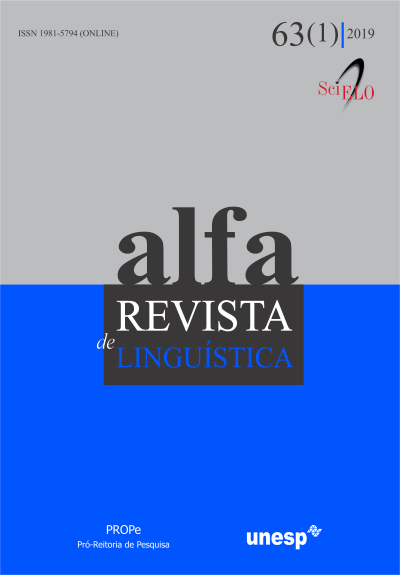Comic strip characters: language acquisition in humor and fiction
DOI:
https://doi.org/10.1590/1981-5794-1904-5Keywords:
Language Acquisition, Fiction, Comic strips, Humor,Abstract
This paper analyzes, according to interactionist researches of Language Acquisition, the speech of children characters on comic strips. Among other things, it analyzes the verisimilitude of these speeches and argues about the need of relating the data from the fiction to the data already collected by researchers, if someone wishes to work with those fictitious data. By contrast, this paper observes the data (the strips) as an important material in order to analyze, in fiction, the representation of the children’s own speech and the effects that children speech produces in their receptors, considering the fact that the comic strips are texts written by adult authors who must make children speech somehow plausible. Noting that the comic strips are texts aiming to produce some effect of humor, this paper further argues that this effect is not related to (or it is very subtly related to) the comic effect produced by some children speeches.
Downloads
Downloads
Published
How to Cite
Issue
Section
License
Manuscripts accepted for publication and published are property of Alfa: Revista de Linguística. It is forbidden the full or partial submission of the manuscript to any other journal. Authors are solely responsible for the article's content. Translation into another language without written permission from the Editor advised by the Editorial Board is prohibited.

